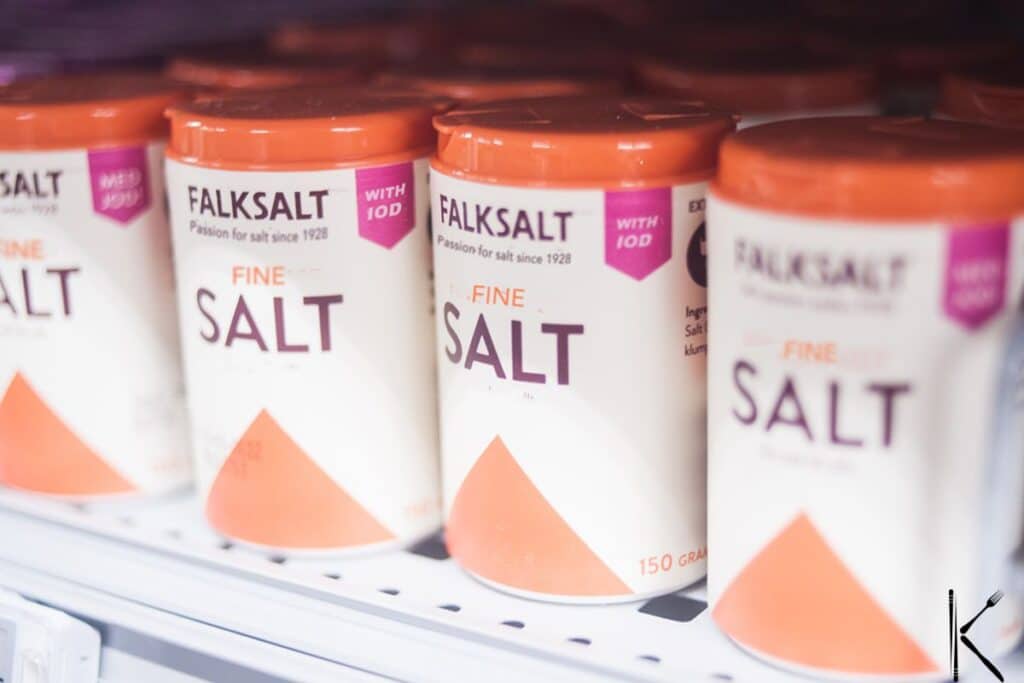Quick summary: No, salt does not go bad, and its shelf life is virtually indefinite. Salt has been used historically to preserve food due to its durability and ability to withstand the test of time. Signs that salt might need replacement include extreme hardness due to prolonged moisture exposure, insect infestation, or absorbing unwanted odors.
Whether you found a forgotten bag in the basement or played a game of unusual questions with friends, you wondered if salt could spoil at all.
There is a reason why people used salt to store food when there was no refrigerator in the past. Salt cannot be spoiled. Never. In fact, when you think that salt is found in the sea or stored in the mountains for thousands of years, its durability makes a lot of sense.
However, certain circumstances may encourage you to throw table salt in the trash rather than in food. Also, you already have salt on the market with different additives, so their shelf life is not always the same.
Here are the details about shelf life of salt:
How Long Does Salt Last?
The salt will not spoil regardless of whether the package is open or not.
True, it can be attacked by some external influences so that it is no longer attractive to you, but that still will not mean that salt is unsafe to eat. Yet some definite differences exist depending on the type.
Pure salt
By pure salt, we mean regular sea salt that is not enriched with any flavors. It can be unrefined sea salt, iodized salt or kosher salt. It is truly an eternal salt, and even when it draws some moisture from the environment, it is still good to eat. For this type of table salt, you do not need to worry about what is written on the package because the expiration date is forever.
Enriched salt
Whether enriched with iodine or with certain flavors, salt can have the best-by shelf life. This will probably be the date printed on the packaging and at least a year or two after that. But you still don’t have to worry that salt isn’t suitable to eat. It just won’t have the same value. Iodine tends to fade over time, as do aromas, so you will be deprived of their presence. Salt will still do its part well.
The same goes for Himalayan salt or Himalayan pink salt. Its flavor might pale with time, but it is still perfectly safe and salty.
Does Salt Expire?
Once again, we will determine the material and say that salt will never become inedible. However, as we said at the beginning, there are certain circumstances that will lead you to buy a new package.
So, can salt go bad? Here are the possible situations.
Sign 1: The salt became hard as stone
Many people wonder if salt expires after it gets a bit humid. Salt absorbs moisture from the environment, so you can expect lumps to form over time. You can usually break them with your fingers and continue to use plain salt as before. But if the effect of moisture is really long-lasting, the whole mass may turn into one big hardball. Then you will probably want fresh packaging. Keeping it in an airtight container for longer shelf life is good.
Sign 2: Insects arrived
Salt will certainly not be the first choice for insects. There is nothing appealing about the salt that would invite them to come. However, if you have problems with kitchen insects, they can also get into the salt packaging. You will probably throw everything in the trash while cleaning. Salt needs to be stored properly.
Sign 3: Salt absorbed the scents
Salt is an excellent absorber of surrounding odors. If you keep it near a roast or barbecue, it will very likely absorb all the smells. Once salt smells on other food, it can hardly be fixed. If you don’t want every future dish to taste like that roast, replace the salt with fresh.
What Is The Best Way To Store Salt?
Salt is a very simple food for long-term storage. Since there is no possibility of spoilage, you can buy a lifetime supply and store it if you want. There are just a few basic guidelines to help you avoid the unwanted scenarios described above.
Tip 1: Choose a cool and dry place
More emphasis on dry, but be sure to avoid too hot places as well if you are going for long-term storage. Dryness is a priority because salt will absorb all the moisture you allow it to. It will probably happen in your salt shaker cause it stands open most of the time.
Tip 2: Seal well
As we have already said, salt absorbs all the odors around it. So, in addition to advising not to keep it near intense aromas, remember to close the salt container well. It will have an indefinite shelf life.
FAQs
How can you tell if salt is bad?
Salt will never be spoiled. All that can happen is that it absorbs the aromas of other foods, making them useless. Or to soak a lot of moisture.
Is it okay to use expired salt?
Yes, it’s okay to use expired salt. You don’t have to think about food safety at all. If everything you’ve found in the house is years expired salt, feel free to use it without fear.
Can expired salt make you sick?
No, expired can’t salt make you sick. All that can happen is that it loses certain nutritional value if you have iodized salt. Iodine will disappear over time, so you will be deprived of its benefits. But salt, as such, will not cause you any inconvenience.
Can you eat 20 year old salt?
Yes, salt does not spoil or expire, so you can safely consume salt that is 20 years old.
Conclusion
Once upon a time, when there was no refrigerator, people used salt as a preservative for more extended food storage. This is because salt will never spoil, absorbs moisture from other foods, and has antibacterial effects. It is primarily sodium chloride and it can last forever.
If you run into a big sale, feel free to buy as much salt as you want and store it in a dry place. You can literally buy a lifetime supply without fear of the product ever spoiling.
See more:









